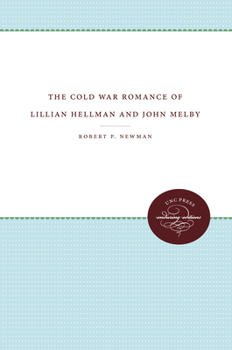The Cold War Romance of Lillian Hellman and John Melby
Select Format
Select Condition 
Book Overview
Lillian Hellman's memoirs are as notable for what they omit as for what they reveal. In An Unfinished Woman (1969), she notes that, although she kept an extensive diary of her Moscow trip in the winter of 1944-45, "No where is there a record of . . . how close I felt then and now to a State Department career man whose future, seven or eight years later, went down the drain for no reason except the brutal cowardice of his colleagues under the hammering of Joe McCarthy."
The State Department career man is John Fremont Melby, principal author of the government's China White Paper of 1949. Hellman and Melby met in Russia, fell in love, talked often of marriage, and, during their separations over the next thirty years, wrote each other voluminously. When Hellman appeared before the House Un-American Activities Committee in the famous confrontation of May 21, 1952, she was anxious to protect not the Hollywood leftists she had known but Melby and Averell Harriman, the former American ambassador to Russia under whose roof she began her affair with Melby.
The Cold War Romance of Lillian Hellman and John Melby is the story of their affair, certainly one of the most intense of Hellman's life. It is also the story of Hellman's role in Melby's seven Loyalty-Security hearings, extending over eighteen months. The transcripts of these hearings, divulged here for the first time, reveal far more about her politics than does her brief appearance before the HUAC. Melby was fired from the State Department in 1953 by John Foster Dulles because of his affair with Hellman and because he would not repudiate her. It was a pure case of "guilt by association."
This is a tale of politics, personalities, and passion. Based on Hellman's and Melby's letters, FBI and Passport Office files, transcripts of Melby's hearings, and the files of Hellman's lawyer, Joseph Rauh, this book establishes that Hellman's association with the Communist party was fleeting. But more importantly, it is a compelling account of a love affair that was aborted and then revived by the Cold War.
Originally published in 1989.
A UNC Press Enduring Edition -- UNC Press Enduring Editions use the latest in digital technology to make available again books from our distinguished backlist that were previously out of print. These editions are published unaltered from the original, and are presented in affordable paperback formats, bringing readers both historical and cultural value.





